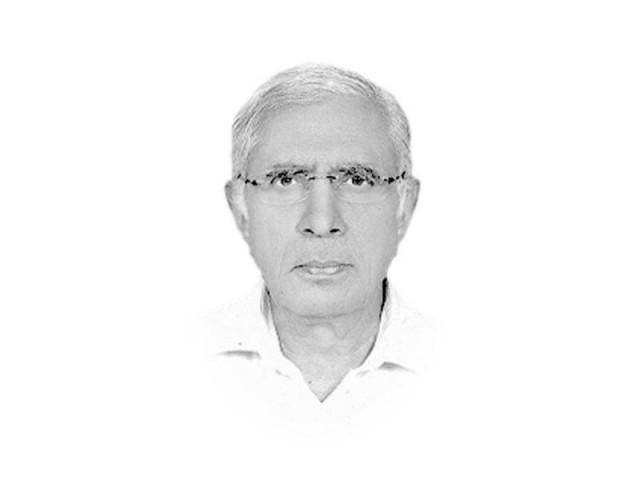Terror stalks South Asia
The new wave of suicide bombings has so far taken a very heavy toll of lives in Pakistan

The writer served as Executive Editor of The Express Tribune from 2009 to 2014
The question is, are the two neighbours trying to get even with each other by resorting to terrorism? This is unthinkable. Both seem to be victims rather than perpetrators of terrorism. Perhaps a third force, most likely the Daesh, is trying to exploit to the hilt the mistrust that exists between the two countries to get a foot-hold in some parts of the territory to set up a terror headquarter for launching its activities across South Asia.
If this is what is being planned by Daesh it is time for Pakistan, Afghanistan and India to join hands to defeat the menace before it gets out of control. But this cannot happen as long as the mistrust that exists between India and Pakistan on the one hand and between Afghanistan and Pakistan on the other is not eliminated.
We all know why there exists mistrust of serious proportions between Pakistan and India. While it is the responsibility of Islamabad to dismantle the non-state actors that have been playing havoc with the relations between the two, India being the bigger neighbour should be magnanimous enough to take the first steps towards creating conditions conducive to a negotiated settlement of bilateral disputes on give-and-take basis. But these negotiations need not hold back cooperation between the two on tackling the menace of terrorism jointly.
Here it would not be out of place to reassure India that its major concern about the China-Pakistan Economic Corridor (CPEC) has already been taken care of by Article 6 of the Sino-Pakistan Agreement signed in 1963 as it makes it clear that after the settlement of the Kashmir dispute between Pakistan and India, the sovereign authority concerned will reopen negotiations with China on the boundary to replace the present agreement.
The mistrust between Afghanistan and Pakistan has been building since the Soviet invasion of our northwestern neighbour. Those Afghans who had fought on the side of Soviet troops in the 1980s against the CIA-ISI sponsored Afghan Mujahideen cannot but look with suspicion at Pakistan. Next, those that had fought on the side of the Northern Alliance against the ISI sponsored Taliban in the 1990s would be perhaps even more distrustful of Pakistan.
Then those who are fighting on the side of Afghan Taliban against the occupying US troops since the Pakistan- facilitated invasion of their country in November 2001, notwithstanding the officially sanctioned sanctuaries provided to Haqqanis in the border areas can hardly be expected to trust us. Remember how we humiliated Mullah Abdul Salam Zaeef, the last Taliban ambassador to Pakistan, by arresting him and handing him over to the US ignoring his request for asylum in Pakistan?
In fact our folly of providing sanctuaries to Haqqanis who are at war against the current Kabul government as well as our panicky decision to force the Afghan refugees to go back home has further eroded the already shredded Afghan trust in Pakistan. And finally, no self- respecting Afghan national can be expected to trust a neighbour that had openly tried to carve out strategic depth for itself in his country without even so much as your permission.
When you add up all these Afghans who mistrust Pakistan you come to the very unfortunate conclusion that there is hardly any one left in Afghanistan who can be called a friend of Pakistan. This tells you why there is so much hatred among the people of Afghanistan for Pakistan.
One could see that there are legitimate reasons why Afghans to a man mistrust Pakistan. Being the bigger neighbor it is the responsibility of Pakistan to take the first crucial steps like actually closing its doors on Haqqanis, joining hands with Kabul to militarily defeat the Taliban insurgents and create conditions conducive to resolving any official disputes that exist between the two on the basis of give-and-take. But these negotiations need not hold up the two from joining hands to defeat the menace of terrorism.
Published in The Express Tribune, February 18th, 2017.
Like Opinion & Editorial on Facebook, follow @ETOpEd on Twitter to receive all updates on all our daily pieces.















COMMENTS
Comments are moderated and generally will be posted if they are on-topic and not abusive.
For more information, please see our Comments FAQ